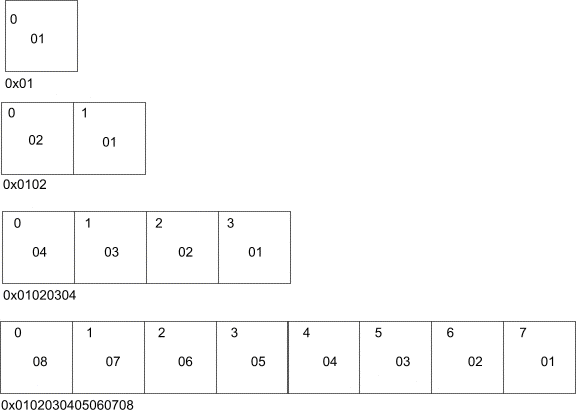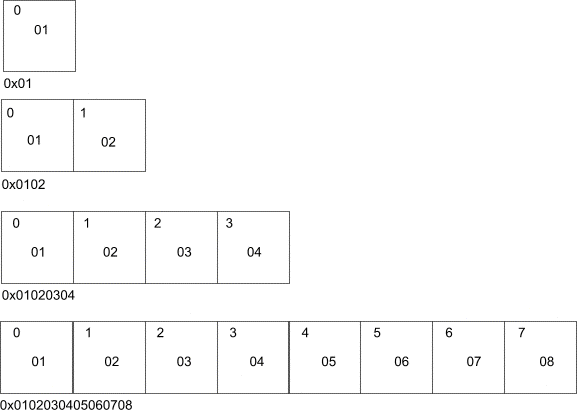
|
|
ELF provides an object file framework to support multiple processors, multiple data encodings, and multiple classes of machines. To support this object file family, the initial bytes of the file specify how to interpret the file, independent of the processor on which the inquiry is made and independent of the file's remaining contents.
The initial bytes of an ELF header (and an object file)
correspond to the e_ident member.
| Name | Value | Purpose |
|---|---|---|
| EI_MAG0 | 0 | File identification |
| EI_MAG1 | 1 | File identification |
| EI_MAG2 | 2 | File identification |
| EI_MAG3 | 3 | File identification |
| EI_CLASS | 4 | File class |
| EI_DATA | 5 | Data encoding |
| EI_VERSION | 6 | File version |
| EI_OSABI | 7 | Operating system/ABI identification |
| EI_ABIVERSION | 8 | ABI version |
| EI_PAD | 9 | Start of padding bytes |
| EI_NIDENT | 10 | Size of e_ident[] |
e_ident[ ] identification indexes
These indexes access bytes that hold the following values.
| Name | Value | Position |
|---|---|---|
| ELFMAG0 | 0x7f | e_ident[EI_MAG0] |
| ELFMAG1 | 'E' | e_ident[EI_MAG1] |
| ELFMAG2 | 'L' | e_ident[EI_MAG2] |
| ELFMAG3 | 'F' | e_ident[EI_MAG3] |
| Name | Value | Meaning |
|---|---|---|
| ELFCLASSNONE | 0 | Invalid class |
| ELFCLASS32 | 1 | 32-bit objects |
| ELFCLASS64 | 2 | 64-bit objects |
The file format is designed to be portable among machines of various sizes, without imposing the sizes of the largest machine on the smallest. The class of the file defines the basic types used by the data structures of the object file container itself. The data contained in object file sections may follow a different programming model. If so, the processor supplement describes the model used.
Class ELFCLASS32 supports machines with 32-bit architectures. It uses the basic types defined in the table labeled ``32-Bit Data Types.''
Class ELFCLASS64 supports machines with 64-bit architectures. It uses the basic types defined in the table labeled ``64-Bit Data Types.''
Other classes will be defined as necessary, with different basic types and sizes for object file data.
| Name | Value | Meaning |
|---|---|---|
| ELFDATANONE | 0 | Invalid data encoding |
| ELFDATA2LSB | 1 | See below |
| ELFDATA2MSB | 2 | See below |
Other values are reserved and will be assigned to new encodings as necessary.
A file's data encoding specifies how to interpret the basic objects in a file. Class ELFCLASS32 files use objects that occupy 1, 2, and 4 bytes. Class ELFCLASS64 files use objects that occupy 1, 2, 4, and 8 bytes. Under the defined encodings, objects are represented as shown below.
Encoding ELFDATA2LSB specifies 2's complement values, with the least significant byte occupying the lowest address.

Data encoding ELFDATA2LSB
Encoding ELFDATA2MSB specifies 2's complement values, with the most significant byte occupying the lowest address.

Data encoding ELFDATA2MSB